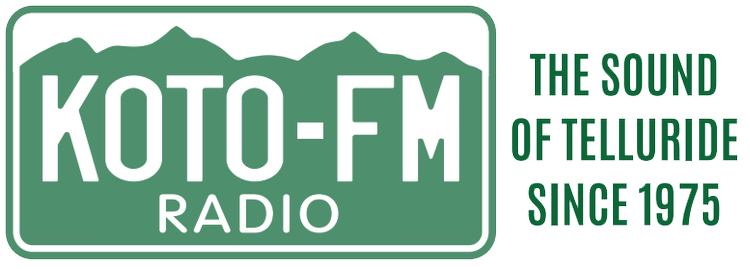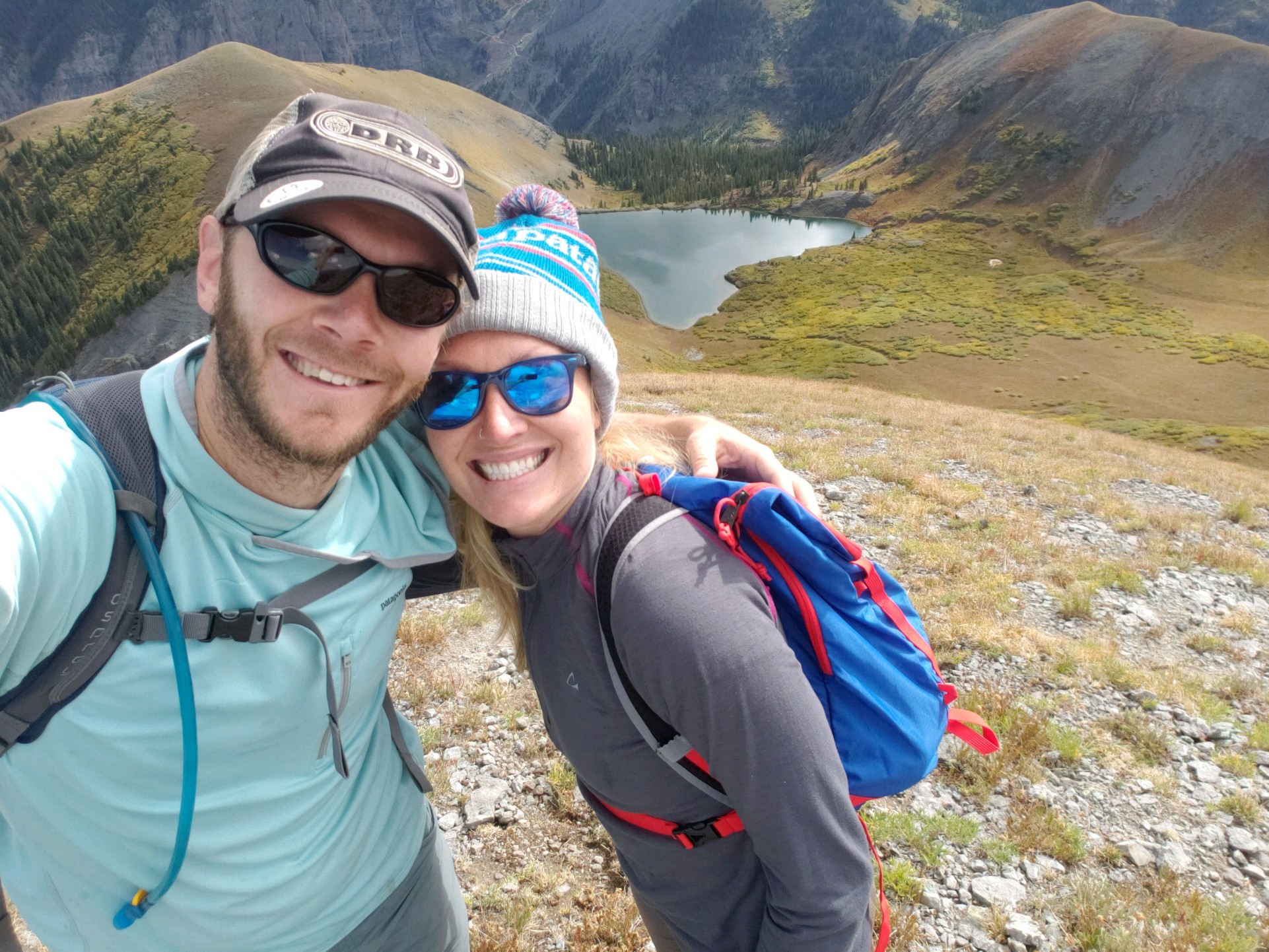by Julia Caulfield
Simon Perkovich stands in front of “Just Some Bus” in Telluride’s Town Park
Many of Colorado’s mountain towns are facing a housing crisis. Soaring prices and a limited housing stock can make finding a place to call home difficult. But as KOTO’s Julia Caulfield reports, this winter, Telluride is trying something new to find homes for locals.
In the summer, Telluride’s Town Park is the home to music festivals, softball games, lazy days in the sun. Winter brings a sledding hill, Nordic skiing, and this year, housing.
“Alright we’re in the Town Park parking lot. This is my bus, I call it ‘Just Some Bus’,” says Simon Perkovich. This winter, he’s living in his bus, in Town Park’s parking lot. Although, he sees his bus, as much more than a home.
“It has a deck that folds down to be a performing platform. It’s painted with chalkboard paint, so you can draw on any surface of it. It’s meant to be kind of a perfect COVID-mobile,” he says, “You could drive it to a cul-de-sac and set up a show and do theatre while we can’t gather indoors.”
Perkovich is living in Town Park this winter as part of a pilot program to provide RV housing for the winter. The Town of Telluride is providing 9 parking spaces for residents to live in their trailer, mobile home, RV, or vehicle.
Telluride Town Councilmember Dan Enright helped to push the program forward. He first heard the idea before he was on town council, and a member of Telluride’s Planning and Zoning Commission.
Enright says, “this was the one that really caught my attention and felt the most immediately accessible. The most available to be able to bring housing this season.”
Enright notes the Town of Telluride has other housing projects in the works, but those are months, if not years down the road.
Telluride Town Council approved the program for the winter last fall, with tenants moving in mid-November. This winter, the program is housing 12 individuals – paying $300 per month in rent.
Walk inside, and “Just Some Bus” is a modest affair.
“It’s pretty simple in here. I built most of it. It’s pretty much just a bed and some storage boxes, some shelving. The Town Park gives us electrical outlets, so I’ve got two heaters running. That’s how it keeps warm in the winter, you know this close to the San Miguel and Bear Creek,” Perkovich says, “It has insulation and paneling, wood floors, nothing too fancy.”
He uses a camping stove for cooking, although working at a restaurant also provides a lot of his meals. He uses sinks provided by the Town to wash up.
So far, Perkovich says the situation has been great.
“It has been awesome,” he says, “It’s the best form of employee housing I could think of. As far as affordability, after one month of working here, I saved up enough to pay off my whole season here. That is something I would never have dreamed of in Telluride.”
Perkovich was born and raised in Telluride. He bought “Just Some Bus” at the beginning of COVID, built it out and drove it to Pittsburg, where he was finishing university. He graduated and home was calling.
“I link it to ‘Lord of the Rings’. I say that hobbits always return to the Shire. I’ve seen it with all my friends. We all went to Boulder, and we all come back,” he notes.
He said the housing in Town Park hit at just the right moment.
“I was figuring I would park this back in Norwood, and do a half Telluride, half Norwood gig,” Perkovich says, “But when I graduated, it just so happened that Telluride was doing the acceptance of RVs in Town Park. I thought, since I’ve been living in an RV I really should capitalize on that.”
Both Enright and Perkovich acknowledge allowing RVs or buses to stay in Town Park isn’t the silver bullet to housing in the community. They add, it’s in essence, legalizing what some are already doing.
“It’s a good stab at community housing, at employee housing. I do know a lot of friends who are interested in this kind of thing, and even have rigs, but reserve it for camping because it’s somewhat illegal to sleep in a car,” says Perkovich.
Enright adds it’s a sign of the time for the region.
“It speaks to the needs of our community that we’d even consider something so outside the norm to address our housing crisis,” says Enright.
Come April, the individuals living in Town Park will be headed down the road in search of the next housing opportunity…the housing crisis will not disappear. But for the moment, snuggled up against the San Miguel River, a line of RVs, busses, and vans call Town Park home.





